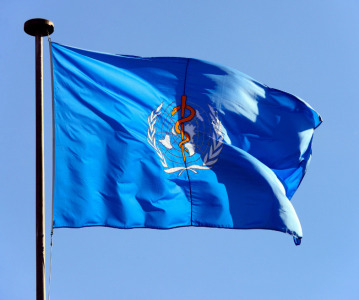SIR-Spheres Y-90 resin microspheres are a well-tolerated alternative to standard therapies for inoperable primary liver cancer, says new UK NICE MIB
Unlike TACE, most patients treated with SIR-Spheres Y-90 resin microspheres usually require only a single treatment.
Sirtex has announced that the UK National Institute for Health and Care Excellence (NICE) has issued a new Medtech Innovation Briefing (MIB) stating that NHS doctors and commissioners may consider SIR-Spheres Y-90 resin microspheres as an alternative to standard therapy with trans-arterial chemoembolization (TACE) or sorafenib in the treatment of patients with inoperable primary liver cancer (hepatocellular carcinoma or HCC).
The new NICE MIB states that patients with inoperable HCC have a poor prognosis and limited effective treatment options, and that existing clinical research evidence suggests that SIR-Spheres Y-90 resin microspheres are as effective as both TACE and sorafenib.
One of the MIB specialist commentators noted that SIR-Spheres Y-90 resin microspheres are also better tolerated than TACE, with fewer incidences of post-embolisation syndrome and shorter in-patient hospital stays.
The new MIB also explains that unlike TACE, which requires multiple procedures, or sorafenib, a medication that must be taken daily, most patients treated with SIR-Spheres Y-90 resin microspheres usually require only a single treatment. SIR-Spheres Y-90 resin microspheres are an innovative form of local radiotherapy typically delivering 30-40 million tiny radioactive beads directly to liver tumours via the bloodstream, which permits a uniform distribution of radioactivity around the tumour sites whilst sparing normal liver cells. In a few patients with inoperable HCC, treatment with SIR-Spheres Y-90 resin microspheres has sufficiently reduced the size of liver tumours to allow potentially curative surgery with liver resection, ablation or transplantation.
Professor Daniel Palmer of the University of Liverpool and Clatterbridge Cancer Centre said that, "This NICE MIB is welcomed, as it opens the door for UK HCC patients to have access to SIR-Spheres Y-90 resin microspheres as a well-tolerated alternative to other standard therapies. Whilst exciting further research with this technology is already well along the way to completion, the new NICE MIB advice may be particularly important now for our patients who cannot tolerate TACE or sorafenib, or are ineligible for these treatments."
Patient advocate Andrew Langford, Chief Executive of the British Liver Trust, stated that "For many years, patients with inoperable HCC have had access to only two effective therapy options. Now, with the publication of the NICE MIB, NHS patients will have a further option in the form of SIR-Spheres Y-90 resin microspheres. This form of local radiotherapy is well-tolerated and convenient for the patient."
Nigel Lange, Chief Executive of Sirtex Europe, said: "We are pleased to have received the NICE MIB for the treatment of inoperable primary liver cancer with SIR-Spheres Y-90 resin microspheres. It is a difficult cancer to control and better therapies are needed to treat patients safely and effectively, with special attention to the quality of their daily life, which is of utmost importance. We are also working to provide further strong evidence of our technology's effectiveness and safety in treating unresectable HCC. Results of the large SARAH study are expected to be available later this year. Another large HCC study, SORAMIC, has completed recruitment in the palliative group with results expected in 2018. A third large HCC study, SIRveNIB, is expected to complete recruitment this year, as well."
Related News
-
News Pharmaceutical industry supports COP28 health stance in joint statement
As COP28 takes place over this week in Dubai, UAE, several bodies in the pharmaceutical and health industries have come together to announce support of key movements in sustainability in the sector, and to recognise sustainability as a health issue.&nb... -
News Biden backs Cold-War measures to shore-up medical supply chains
In a recent strategy to combat rising inflation and the cost of living crisis, President Joe Biden has invoked a Cold War-era act to increase investment in a selection of medicines and supplies. -
News CPHI Podcast Series: What does the changing US Pharma market mean for industry and patients alike?
In this week's episode of the CPHI Podcast Series Lucy Chard, Digital Editor for CPHI Online is joined by James Manser to discuss the political and market changes in the US pharma field. -
News Which 10 drugs are open to price negotiation with Medicare in the USA?
The Centres for Medicare & Medicaid Services, under the Biden administration in the USA, has released a list of the 10 drugs that will be open to price negotiations as part of the new legislation under the Inflation Reduction Act (IRA). -
News 10 Major Drug Approvals So Far in 2023
Last year, 37 novel drugs were approved by the FDA, this was a high number for such a category, and covered many fields including oncology, demonstrating how promising further research is, and how it is only continuing to build. To date, there are alre... -
News Novartis agrees for copies to be made of cancer drug to reach poorer countries
Novartis signs agreement with MPP to have generics of it's leukemia drug made so that it can be more easily distributed to the world's poorer countries. -
News CPHI Podcast Series: outsourcing and manufacturing trends
Listen to the CPHI Podcast Series this June to hear Gil Roth of the PBOA speak with Digital Editor Lucy Chard about the biggest trends and topics to watch in pharma outsourcing and manufacturing at the minute. -
News New WHO health emergency guidelines expect full transparency from Big Pharma
The WHO are proposing a new set of pandemic guidelines to set out how future global health crises should be handled.
Position your company at the heart of the global Pharma industry with a CPHI Online membership
-
Your products and solutions visible to thousands of visitors within the largest Pharma marketplace
-
Generate high-quality, engaged leads for your business, all year round
-
Promote your business as the industry’s thought-leader by hosting your reports, brochures and videos within your profile
-
Your company’s profile boosted at all participating CPHI events
-
An easy-to-use platform with a detailed dashboard showing your leads and performance







